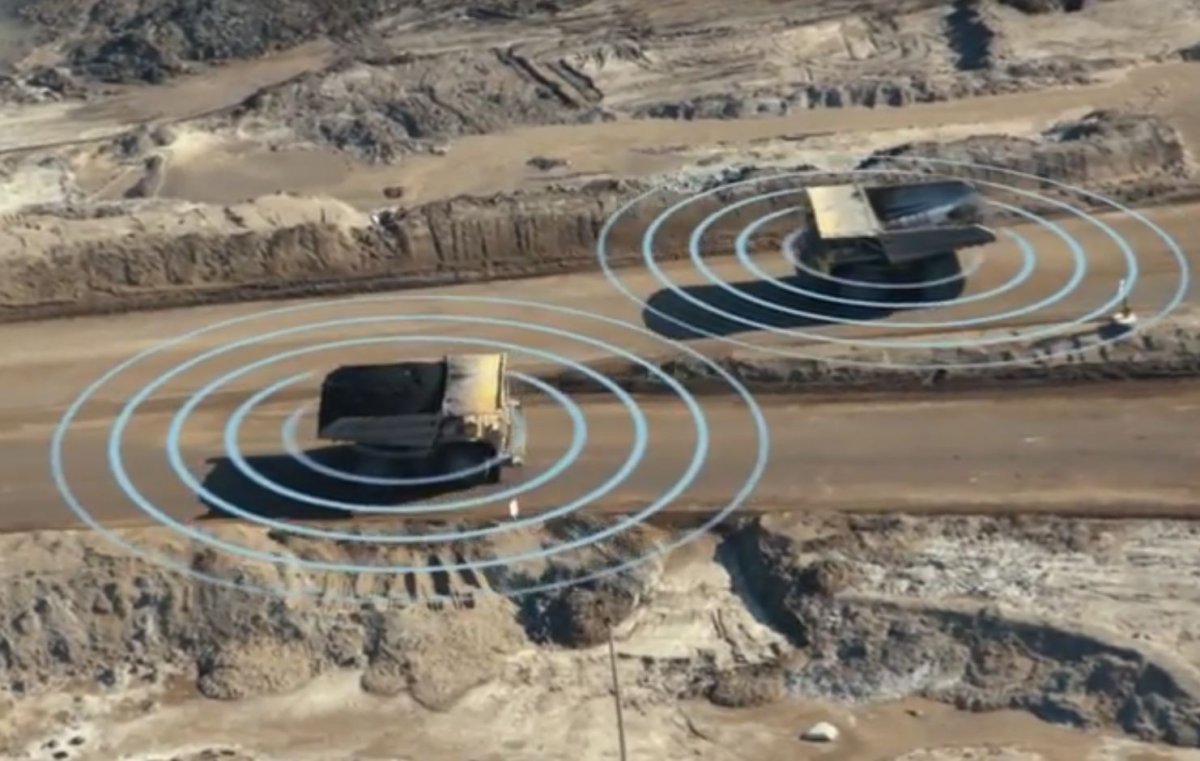As Suncor Energy prepares to shed 400 jobs to prepare for the implementation of driverless ore-hauling trucks, the union representing workers at the company is publicly condemning the decision.

“Highly experienced and capable operators will always need to play a role in oilsands extraction, and it is a mistake to think otherwise,” said Jerry Dias, Unifor National President in a statement.
A Unifor representative also told Global News that the union has worked with Suncor to ensure that no permanent, full-time employees would be laid off
Driverless technology is only just starting to cause layoffs
The company has been testing the 400-tonne capacity Komatsu trucks for about four years and has nine now. It announced Tuesday it will gradually build a fleet of more than 150 driverless trucks over the next six years, starting with the North Steepbank mine at its Base Camp north of Fort McMurray, making Suncor the first oilsands mining operation to adopt this technology.
The news adds to the growing fear that automation will lead to job losses across Canada, starting with manufacturing and assembly line jobs, and taking down one profession at a time from there.
WATCH: Will driverless cars make jobs like pizza delivery go extinct?

David Ticoll, a distinguished fellow at the University of Toronto’s Innovation and Policy Lab, states that while Suncor’s move doesn’t indicate that mass job losses are imminent, it’s something regulators need to prepare for.
“This in itself is not an indication that suddenly all the transport trucks across Canada are going to be suddenly automated. … But it will happen,” Ticoll said.
Ticoll included Suncor in a research study he completed almost two years ago, when it was still testing the driverless truck fleets it would eventually employ. He said in an interview with Global News that the automation of the mining sector using driverless and robotics technology is already well under way.
WATCH: Driverless cars on Canadian roads in 2019?

“It’s very easy to put in the driverless truck because you don’t have to deal with traffic or any of that stuff. It’s not the same as trucks that drive on streets. It’s basically just an extension of what’s already happening in the mining industry, which is robots, and a truck is a kind of robot.”
He said driverless trucks will soon be used in other businesses, such as large factory farms.
Trucking might be one of the first, but it won’t be the last
While experts cite numerous benefits to autonomous vehicles, including safety, reduced transportation costs and environmental benefits, driverless technology has long been touted as detrimental for employment in multiple sectors across Canada.
A report released this week by the Standing Senate Committee on Transport and Communications on Canada’s preparedness for autonomous vehicles stated that hundreds of thousands of jobs would be threatened, highlighting the tax, transportation, parking and trucking industries. These sectors combined employ approximately 1.1 million people.
Barrie Kirk, the executive director of the Canadian Automated Vehicles Centre of Excellence, said layoffs will be inevitable, and they could be much more widespread than previously predicted.
“Self-driving vehicles of all kinds have many benefits, but the biggest disadvantage is that there will be a lot of people being laid off. It’s not just the trucking industry. Transit workers, bus drivers, gas station attendants, people who work for car dealerships, people in the insurance industry, etc.,” Kirk said.
“There’s going to be a lot of labour disruption, and I’m predicting that there will be labour unrest,” he said.
Ticoll and Kirk agree that the impacts of automated vehicles on the labour market, whether in trucking and logistics or in commercial vehicles, will be felt across most industries that interact with these vehicles in some way.
WATCH: How soon we can expect to see driverless cars on the road

The arrival of driverless vehicles could eventually make several occupations obsolete — including car dealerships, car insurance and oil and pipeline industries — as demand for gas decreases.
How can Canadians be prepared?
Both Ticoll and Kirk say the best way to prepare is to start now.
“Which of your companies is going to survive? Prepare for new products, change the business model,” Kirk said.
Furthermore, this shift isn’t happening slowly. Both experts agree that Canadians can expect to see driverless cars and trucks on the roads and on workplace campuses not in a matter of decades, but in a matter of years.
It’s important to note that while studies have predicted a shortage in trucking industry employees over the next several years, Kirk states that the automation of the sector continues to push on, and may even help to address this shortage.
LISTEN: How should regulators prepare for driverless haul trucks?
The question on the minds of many Canadians is, how can we be ready? Ticoll advises that anyone employed in industries that are at high risk for disruption should be proactive about learning new digital skills so they can make the transition easier.
Kirk, on the other hand, questions whether it’s realistic to “take a 50-year-old bus driver and train him to be a software developer.”
Yet he added that Canadians worried about their job security need to plan ahead, and should consider getting in on the ground floor of the driverless trend.
“You don’t have to be a software developer or a tech person. They need marketing and sales people too,” he said.
For example, Suncor’s chief operating officer Mark Little said that while autonomous trucks will remove the need for about 500 people, the fleet will create about 100 new positions, for a net loss of 400.
“They need to look at where the economy is going. My message is to get into the ecosystem.”




Comments